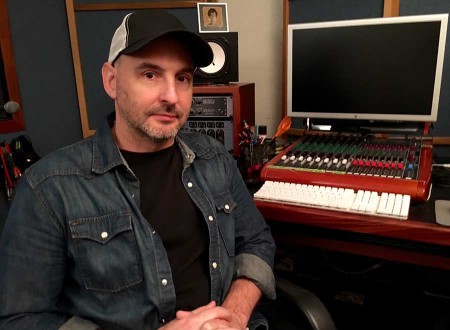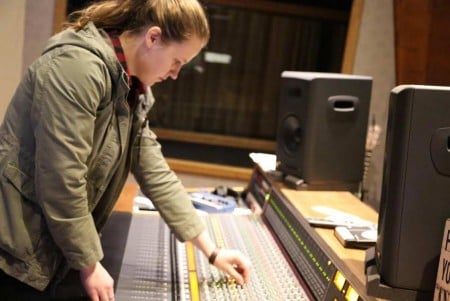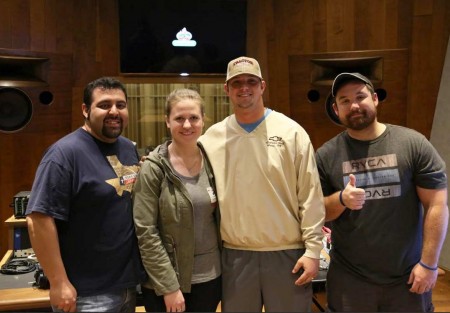Mentor News
RRFC INTERVIEW: Recording Connection mentor Thom Flowers is all about the music
A long-time music industry veteran, Recording Connection mentor Thom Flowers cut his teeth on the West Coast rock and punk scenes, eventually landing in Santa Barbara, where he worked with bands like Sugarcult, Mad Caddies and The Ataris (for whom he engineered their gold record So Long, Astoria). Today, Thom has his hand in a lot of pots in Santa Barbara, whether it’s writing and composing for film and TV, recording bands in his studio, or playing and touring as a guitarist. His musical outlook on engineering makes him a great fit for creative musicians looking to expand their technical chops.
In a recent interview with RRFC, Thom gave us a glimpse into what makes him tick as an artist, from his history in the Santa Barbara scene to his feelings about keeping things “all about the music.” As always, there are some key nuggets of wisdom for our students as well!
* * * * *

Thom Flowers
I started off as a guitar player, played in lots of bands and got a 4-track to record demos on, and just fell in love with that part of the process. Eventually, after recording demos in different studios, I felt I could do better, so opened my own studio and did that for a while, and then ended up working out of a studio here in Santa Barbara called Orange Whip with a friend of mine,
Angus Cooke, and did a lot of work there for about 10 years all through the 90s. A lot of bands came out of that studio…The Ataris, Lagwagon, Sugarcult, Mad Caddies, too many to name, really.
RRFC: When you’re working with a band like The Ataris, how was the process of recording them different from, say, when they were on Kung Fu to when they moved to Columbia and had a bigger budget?
Thom: Well they took a lot more time. On tight budgets it’s all about getting in and getting out as quickly as possible. With a budget, you have the leisure of taking your time and not rushing things and if you feel something is not quite there you can keep pushing for what it is that you have as a vision. Whereas the tight budget, you have a band, they sound like X and you try to capture that sound, you’re creative and coming up with new parts and make sure the songs are tight and all of that, but you’re working really quickly.
RRFC: What other kinds of businesses and clients do you work with there in Santa Barbara?
Thom: I do a lot of songwriting for film and television, just kind of on my own and with co-writers. I do mixing for a handful of producers in various places in the country and occasionally I’ll produce a record here and there which sometimes I do out of my studio or partly out my studio.
RRFC: You said you are writing a lot for television. Are there any projects you’re allowed to name that you’re working on?
Thom: I had a song in a Budweiser campaign, lots of stuff on MTV shows, the list goes on. Also some major network shows.
RRFC: So at what point did Recording Connection come into your daily routine in your studio, and what made you want to teach and pass along this knowledge?
Thom: Well, a friend of mine actually recommended me…I knew somebody there, and [they] recommended me; I didn’t know anything about it. But it’s something that is getting lost today with recording studios…







